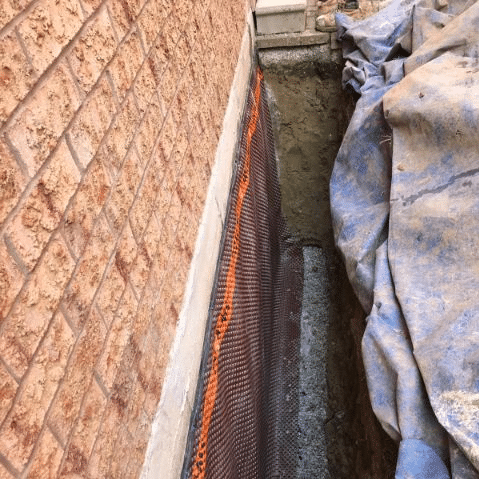Basement waterproofing is a crucial aspect of maintaining a dry and healthy basement, particularly. With frequent heavy rains and high water tables, taking proactive measures to prevent water infiltration is essential. There are key considerations that homeowners should keep in mind when planning basement waterproofing Toronto.
By understanding these factors, you can ensure that your basement remains a safe and functional space for years to come. By considering the following factors and implementing a comprehensive solution in waterproofing basements Toronto, you can protect your home from water damage, prevent mold growth, and ensure a safe and dry living environment.
- Source Of Water
Identifying the source of water intrusion is the first step in basement waterproofing Toronto. Understanding where the water is coming from is crucial for implementing an effective waterproofing solution.
Water can enter the basement due to various reasons such as hydrostatic pressure, leaky pipes, poor drainage, or cracks in the foundation. By identifying the root cause, you can address the problem at its source and prevent further water damage.
- Professional Assessment
Before proceeding with any waterproofing solution, it is highly recommended to consult with a professional basement waterproofing contractor. They have the expertise and experience to conduct a comprehensive assessment of your basement and identify the degree of the water damage.
A professional assessment will help determine the most suitable waterproofing method for your specific situation. They will consider factors such as the severity of the water intrusion, the condition of the foundation, and the surrounding soil conditions to provide expert recommendations tailored to your needs.
- Waterproofing Techniques
There are various basement waterproofing techniques available, and understanding the different options is crucial in making an informed decision. Two commonly used techniques are interior waterproofing and exterior waterproofing.
Interior waterproofing involves the installation of drainage systems, such as French drains and sump pumps, along with the application of sealants on the interior walls. This method helps manage water that has already entered the basement.
Exterior waterproofing, on the other hand, focuses on preventing water infiltration from the outside. It typically involves excavating around the foundation, applying waterproof coatings or membranes, and ensuring proper drainage away from the building.
In some cases, a combination of both interior and exterior solutions may be necessary for optimal protection.
- Quality Of Materials
When it comes to basement waterproofing, using high-quality materials is essential for long-lasting results. Look for products that are specifically designed for basement waterproofing and have a proven track record of durability and effectiveness.
Inferior materials may fail over time, compromising the waterproofing system and leading to further water damage. Investing in superior materials will ensure that your basement remains protected against water intrusion for years to come.
- Professional Installation
Even the highest-quality materials won't deliver optimal results if not installed correctly. Hiring a reputable and experienced contractor in basement waterproofing Toronto is crucial for ensuring proper installation.
They have the necessary skills and knowledge to implement the chosen waterproofing solution effectively. Before making a decision, thoroughly research and evaluate different contractors. Check their credentials, certifications, and customer reviews to ensure you are hiring a reliable professional who will deliver quality workmanship.
- Warranty And Maintenance
When selecting a basement waterproofing solution, consider the warranty offered by the contractor or manufacturer. A solid warranty demonstrates their confidence in the effectiveness and durability of their products or services.
Inquire about the terms and conditions of the warranty, including its coverage and duration. Additionally, ask about the recommended maintenance procedures to keep the waterproofing system in optimal condition. Regular inspections, cleaning, and necessary upkeep will help prolong the lifespan of the waterproofing solution and ensure its continued effectiveness.
- Cost And Value
While cost is an important consideration, it is essential to evaluate the long-term value of basement waterproofing. Investing in high-quality materials and professional installation may come with a higher upfront cost. However, it can save you from expensive repairs and damage caused by water intrusion in the future.
Consider the overall value and benefits of the chosen waterproofing solution in terms of its effectiveness, durability, and potential for preventing further damage to your home. Making an informed financial decision based on the long-term benefits will help protect your basement and preserve the value of your property.
